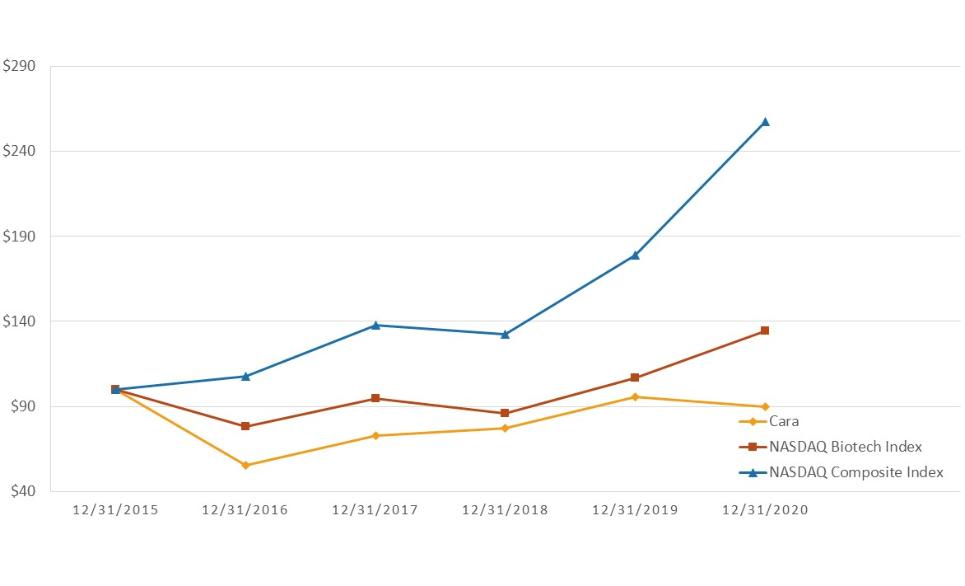rely on know-how, and continuing technological innovation to develop, strengthen, and maintain our proprietary position in the field of peripheral analgesia and treatment of pruritus.
A third party may hold intellectual property, including patent rights, which are important or necessary to the development of our products. It may be necessary for us to use the patented or proprietary technology of third parties to commercialize our products, in which case we would be required to obtain a license from these third parties on commercially reasonable terms, or our business could be harmed, possibly materially. If we were not able to obtain a license or were not able to obtain a license on commercially reasonable terms, our business could be harmed, possibly materially.
We plan to continue to expand our intellectual property estate by filing patent applications directed to novel peripheral analgesics, novel formulations and novel uses of our proprietary compounds. We anticipate seeking patent protection in the United States and internationally for the chemistries and processes for manufacturing these compounds and novel formulations and uses of these compounds in a variety of therapies.
The patent positions of biopharmaceutical companies like us are generally uncertain and involve complex legal, scientific and factual questions. In addition, the coverage claimed in a patent application can be significantly reduced before the patent is issued, and the patent’s scope can be modified after issuance by later judicial decisions. Consequently, we do not know whether any of our product candidates will be adequately protectable or remain protected by enforceable patents. We cannot predict whether the patent applications we are currently pursuing will issue as patents in any particular jurisdiction or whether the claims of any issued patents will provide sufficient proprietary protection from competitors. Any patents that we hold may be challenged, circumvented or invalidated by third parties.
Because patent applications in the United States and certain other jurisdictions are maintained in secrecy for up to 18 months, and since publication of discoveries in the scientific or patent literature often lags behind actual discoveries, we cannot be certain of our entitlement to the inventions covered by pending patent applications. Moreover, although unlikely, we may have to participate in interference proceedings declared by the United States Patent and Trademark Office, or USPTO, to determine priority of invention, or in post-grant challenge proceedings in the USPTO, or a foreign patent office such as oppositions, inter-partes review, post grant review, or a derivation proceeding, that challenge our entitlement to an invention or the patentability of one or more claims in our patent applications or issued patents. Such proceedings could result in substantial cost, even if the eventual outcome is favorable to us.
The patent portfolios for our most advanced programs are summarized below.
CR845/Difelikefalin
Our synthetic peptide amide kappa opioid agonist patent portfolio is wholly owned by us. The portfolio includes seventeen issued U.S. patents (U.S. Patent Nos. 7,402,564; 7,713,937; 7,727,963; 7,842,662; 8,217,007; 8,236,766; 8,486,894; 8,536,131; 8,906,859; 8,951,970; 9,321,810; 9,334,305; 9,359,399; 10,017,536; 10,138,270; 10,913,769 and 10,793,596) with claims to compositions of a wide range of synthetic peptide amide kappa opioid agonists, including CR845/difelikefalin and related molecules, as well as methods of using these compounds. These patents claiming CR845/difelikefalin compositions are due to expire November 12, 2027, although the patent term of one of the patents listed in the FDA Orange Book is expected to be extended for up to a further five (5) years, i.e. to November 12, 2032, based upon the Hatch-Waxman Act. The CR845/difelikefalin patent portfolio also includes pending U.S. patent applications which claim additional uses and methods of administering CR845/difelikefalin. Related foreign applications were filed in more than 40 other countries. National patents have been granted in 31 European countries, as well as in Australia, Brazil, Canada, China, Hong Kong, India, Israel, Japan, Malaysia, Mexico, New Zealand, Russia, Singapore, South Africa and South Korea. These granted foreign patents with claims to CR845/difelikefalin are due expire no earlier than November 12, 2027. The Brazilian patent law provides for a patent term extension of up to ten years for pharmaceutical patents to compensate for the loss of patent term during prosecution.
